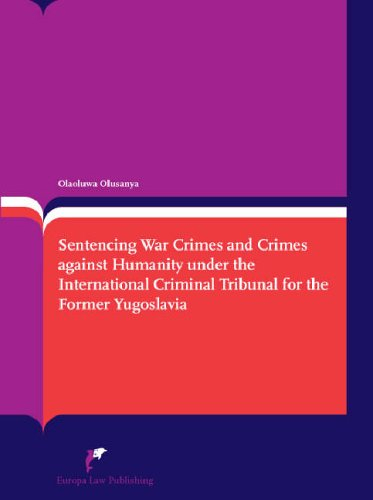
This book focuses on sentencing war crimes and crimes against humanity under the International Criminal Tribunal for the Former Yugoslavia. Currently there appears to be no knowledge of how the sentencing process works for both categories of international crimes. How does one distinguish, for the purpose of imposing punishment of different degrees of severity, war crime offences from similar offences when committed as a crime against humanity?
After all, it appears to make no difference to the victim whether offences such as murder, torture, or imprisonment, are committed as war crimes or as crimes against humanity. Instead, what seems to be more important is that the victim was murdered, tortured or imprisoned. On the other hand, even if it is some how possible to distinguish between war crime and crime against humanity offences, how does one reconcile this distinction with other variables which are relevant to the sentencing calculus for both categories of international crimes, such as the rank of the offender and the offender’s response to the charges?
This books attempts to tackle these questions and ultimately to devise a system of fixed penalties for war crimes and crimes against humanity, which can be globally utilised as a basis for distinguishing between both categories of international crimes in terms of gravity and which is sufficiently flexible to accommodate the full ambit of relevant sentencing variables. Attention has also been given to the jurisprudence of World War two tribunals and national laws on both categories of international crimes.